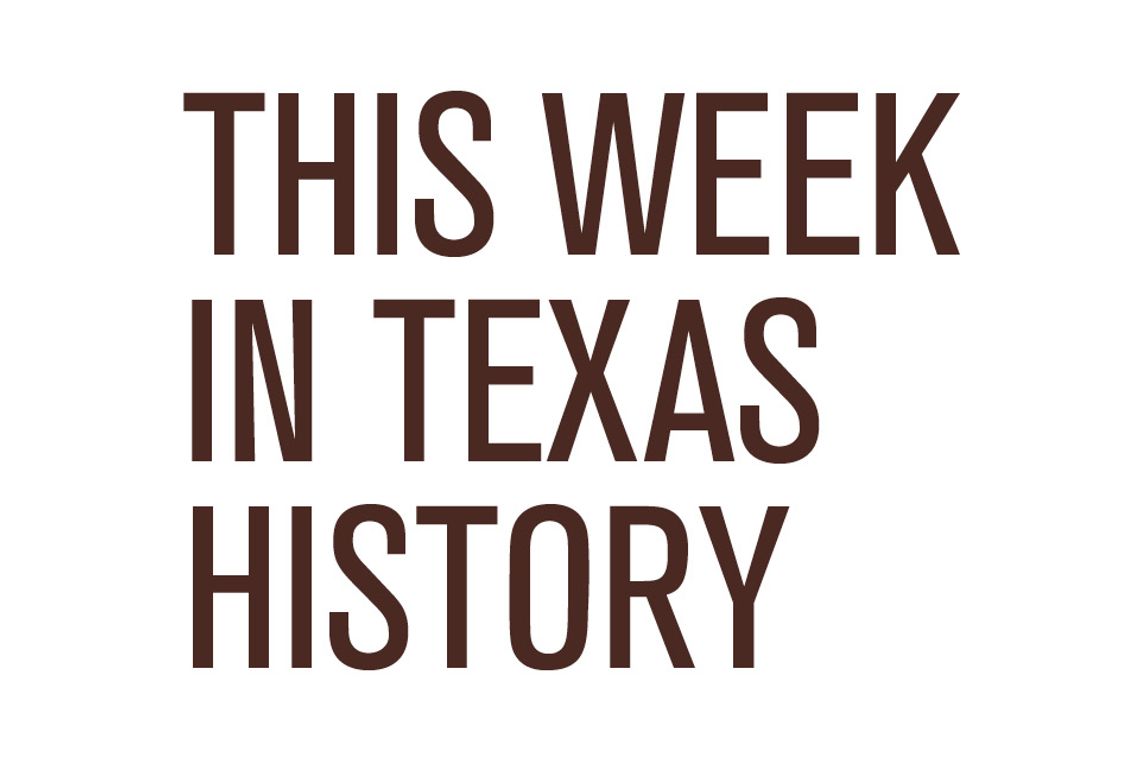A century ago this week on July 27, 1918, Texas Democrats had one and only one choice for United States Senator – the incumbent, Morris Sheppard.
Joseph Weldon Bailey ended the suspense in the summer of 1911 by declaring he would not seek another six years in the Senate. Compromised by corrupt connections with corporate cronies, the shining star of Lone Star politics had forever lost his luster.
The anticlimactic announcement started a yearlong calf scramble for the open seat. Of the four who filed, only two rated as serious contenders: Jacob Wolters, spokesman for the “wet” side in the rancorous debate over booze, and Congressman Morris Sheppard, undisputed champion of the “dry’ cause.
Sheppard’s strong views on strong drink were shaped by childhood observations in the northeast Texas hamlet of Wheatville, two miles northwest of present-day Naples, where “every Saturday was a shambles.” The rowdy ritual convinced him that alcohol was “a habit forming drug, like opium, destructive to human health, morals and character, a menace to society.”
Though only 36 when Bailey bowed out, the Texarkana lawmaker already had spent a decade in the U.S. House of Representatives. Constituents chose the son to fill the father’s shoes after the sudden death of the elder Sheppard in 1902.
The clean-living novice was called “Sister Sheppard” by cynical colleagues, who predicted he too would yield to the temptations of wicked Washington. But to their dismay he never took a dishonest dollar or touched alcohol, coffee, tea and tobacco.
The triple strain of congressional, fraternal and campaign commitments reduced Sheppard to a skin-and-bones 113 pounds. On the brink of collapse, the emaciated politician suspended his candidacy on Valentine’s Day 1912.
A fellow prohibitionist tried to take his place but was no match for Wolters, who had inherited the disgraced Bailey’s big-business backers. After two months of medically supervised seclusion, a rested and rejuvenated Sheppard reentered the race on Apr. 12.
By late June, Wolters was acutely aware that his opponent had more than made up for lost time. To regain momentum, he called for a series of face-to-face debates which Sheppard wisely boycotted.
When Wolters offered a $250 reward to anybody that talked his foe into meeting him at Athens on Jun. 24, Sheppard accepted the challenge and claimed the cash. He not only bested Wolters in the open-air exchange but scored crucial points at his expense by donating the prize money to a Houston mission, which helped alcoholics reclaim their lives, and a La Vernia widow, whose husband was beaten to death in a barroom brawl.
Sheppard surged ahead after the Athens debate and in July beat Wolters convincingly at the polls. The 12 percent of the vote siphoned off by the two lesser candidates denied him a majority, but he whipped Bailey’s understudy 49 to 39 percent.
Bailey, embittered by the rejection of his hand-picked successor, decided to throw his weight around one last time. He resigned out of sheer spite on Jan. 2, 1912, two months before his term expired, and arranged for the immediate appointment of Col. R.M. Johnston, publisher of the Houston Post, by Gov. Oscar B. Colquitt.
The Senator-elect appealed directly to the legislature, which had the final say. As expected, the solons unanimously confirmed the people’s choice for the full six years. But the 87-54 vote in the House and 17-12 margin in the Senate to replace Johnston with Sheppard for the balance of Bailey’s term was a deliberate slap in the face for the self-described “Last Democrat” and his gubernatorial ally.
In his acceptance speech the next day to a joint session of the legislature, Sheppard declared war on liquor. “I shall oppose it because I hear the cries of children, who are hungering for bread. I shall oppose it because I see a mother’s wasted face, her pale lips pleading with the besotted figure at her side.”
True to his word, Sen. Sheppard co-wrote the Eighteenth Amendment and always regarded its ratification as his crowning achievement. He doggedly defended national prohibition in the face of the drastic decline in public support and never forgave President Franklin Roosevelt for endorsing its repeal.
Back home, however, Sheppard’s close identification with the temperance experiment did him no damage. In four reelection races, he never received less than 64 percent of the Democratic primary vote nor fell below 85 percent in the general election.
To most Texans’ way of thinking, Sheppard may not always have been right but he was always on the job. In nearly four decades as a Representative and a Senator, he was absent less than one day a year.
Morris Sheppard died in April 1941 during his fifth term. His 28 years and two months as a U.S. Senator still stands as a Lone Star record followed by Charles Culberson (24 years), Tom Connally (23 years and 10 months), John Tower (23 years and 7 months) and Lloyd Bentsen (22 years).
“Unforgettable Texans,” Bartee’s fourth and latest book, is still available. Get your copy by mailing a check for $28.80 to “Bartee Haile,” P.O. Box 130011, Spring, TX 77393 or order on-line at barteehaile.com.











